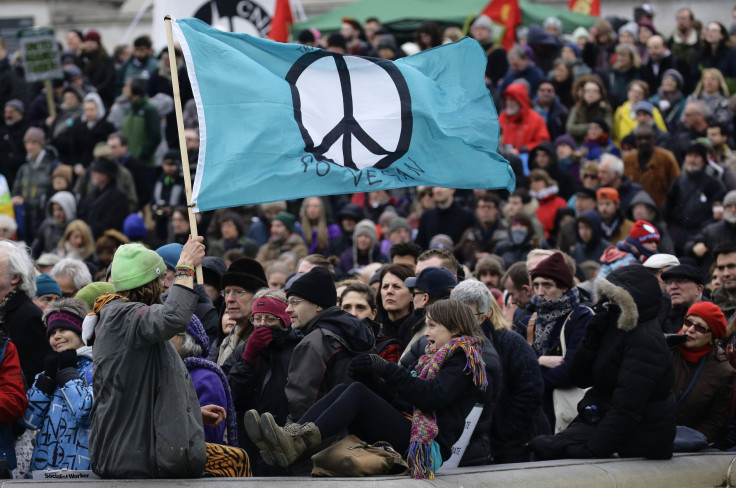Rally In London Against Trident Nuclear Deterrent System Draws Thousands

In what is being called one of the largest nuclear weapons protests in the United Kingdom in a generation, thousands marched through the streets of London against the renewal of the Trident nuclear deterrent system, the Financial Times reported.
Scottish National Party leader and First Minister of Scotland Nicola Sturgeon said Saturday “nuclear-free” is the norm today, the Times reported. “It is the exception to the rule to possess nuclear weapons, let that ring out loudly and clearly. The use of nuclear weapons would bring about human devastation and suffering on an unimaginable scale,” she said.
Besides the moral dilemma of nuclear arms, the cost of the system can be seen as a deterrent as well. The acquisition of four new submarines to transport the Trident deterrent would cost at least 31 billion pounds in the course of 20 years, the U.K. Ministry of Defense has estimated. The whole estimated cost of renewal could be about 41 billion pounds.
“It’s such an excessive amount of money for a weapons system when the [National Health Service] and junior doctors, are struggling,” protester Andy Pomphrey told the Guardian.
Members of various British political parties threw in their support Saturday, including the Plaid Cymru party of Wales and the Green Party. A larger antinuclear crowd hasn’t assembled since 1983 when 300,000 came together in Hyde Park in London to protest the deployment of missiles in Berkshire, England.
The British have had nuclear-weapons carrying submarines gliding in the ocean since 1969 to deter a possible attack on Britain, the BBC reported. The Trident missile itself was developed during Margaret Thatcher’s tenure as prime minister and came into use finally in the 1990.
Thousands gather in Trafalgar Square to oppose renewal of U.K.’s Trident nuclear deterrent, the BBC reported.
Thousands gather in Trafalgar Square to oppose renewal of UK's Trident nuclear deterrent https://t.co/d3a82fFuMi pic.twitter.com/aGQt3FxzsV
— BBC News (UK) (@BBCNews) February 27, 2016
Those who want to keep the Trident have said it is integral to the security of the United Kingdom. Some have also said jobs could be lost if the Trident system were to be abolished as the nuclear defense industry employs thousands in the country.
© Copyright IBTimes 2024. All rights reserved.







